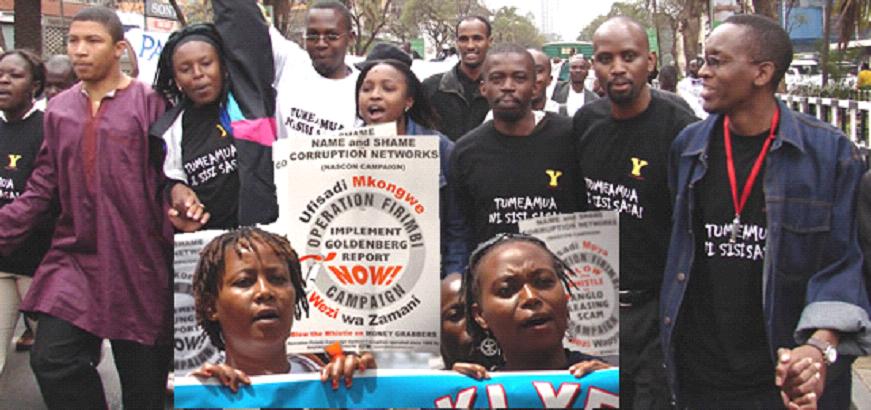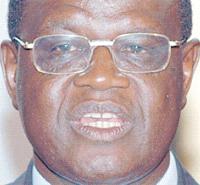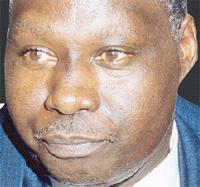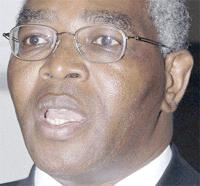08/26/2007


HOME
VILLAGE NEWS
GRANTS
ARCHIVES
;
![High end business opportunity; Low entry point; [Lnk]](../../invest/highendbusiness-plaintext_asp.jpeg)
From: Mark Matunga
Sent: Thursday, August 23, 2007 12:53:31 AM
Subject: Brian, the new face of Civil Society

Activism struggles for new footing
Published on August 23, 2007, 12:00 am
By Dennis Onyango
In the days when the then Kanu government was at the peak of its repressive
streak and without an opposition party, only civil society rose against State
weakness and authoritarianism.
Since then, a vibrant and autonomous civil society came to be seen as a necessary
bulwark against undemocratic State power, whether potential or actual.
The absence of formal political organisations that could confront the State
in the period between 1982 and 1991 left civil society as the only credible
alternative.
The onset of the Narc Administration changed the scenario. Civil society,
including the Church, has gone lukewarm at best or outrightly dead.
Former Nyeri Town MP Wanyiri Kihoro blames the tribulations of the civil
society today on "the Narc deception".
"Narc came to power promising to pursue all those things civil society had
been pushing for. This destabilised civil society. It took quite some time
before people noticed the deception," Kihoro said.
One of the biggest deceptions, the former MP says, occurred over the proposed
Truth, Justice and Reconciliation Commission.
"With Kiraitu Murungi as Justice Minister, we had no reason not to trust
that the injustices of the past would be addressed," Kihoro said.
US-based Kenyan scholar Makau Mutua, in an earlier interview, argued that
the silence of civil society was a natural product of regime change in 2002.
"Countries that have undergone political transitions such as South Africa
normally suffer disorientation of their civil societies," he said.
In South Africa, he said, much of civil society was based on its opposition
to apartheid. It took many years to rebuild civil society, refocus it and
found a new rationale for its existence.
By M G Kimani
Three recent cases of activism illustrate the fragile state of advocacy today
— the march on Parliament’s greedy gratuity, the 50-seat flop, and the mute
protest on the Media Bill.
What became of civil society political lobbying and activism after the fall
of the Kanu regime?
Why have protest and dissent reverted almost entirely to the political sector?
How is that sector, which has an Official Opposition (and Leader) in Parliament
as well as a broader opposition, led by the Orange parties, expected to fill
the vacuum left by the activists?
The dearth of activism in Kenya during the Kibaki Administration seems to
be much more like a death than an interregnum, more extinction than famine.
The burning issues are still incendiary devices as ever, but no one is stoking
the fires of activism.
Outside the political sector and all its discontents where have all the civic
society dissenters, protesters and advocacy champions gone? Where is the
new generation of award-winning Gibson Kamau Kurias, Wangari Maathais, Willy
Mutungas, Kivutha Kibwanas, Peter Anyang’ Nyong’os, James Orengos, the Reverends
Timothy Njoyas and John Githongos?
Government, community groups and customers (a.k.a. stakeholders) all come
into both tactical and strategic contact with activists and activism.
The types of activism range from civil disobedience and the cooperative movement
to strike action, protest songs and guerrilla tactics. And then there is
propaganda and media activism. In the five years that activism appears to
have stalled in Kenya the new phenomenon of Internet activism, including
"hacktivism", has developed around the world.
Narrowly focused
One reason why there has been such a dearth of activism in Kenya in recent
years is that so much of it was defined too narrowly, merely as a posture
and a formation against one regime, Kanu’s, that had long overstayed its
welcome and burnt its bridges. Activism was thus so narrowly focused on politics
that the key activists were soon inducted and effectively co-opted by the
then incoming Kibaki Administration. They disappeared into the new order
as Cabinet ministers, members of judicial commissions of enquiry, the State-controlled
Kenya Anti-Corruption Commission (KACC), the Bench, State corporations and
the Foreign Office.
Three recent cases of activism amply illustrated the precarious state of
advocacy in Kenya today. And they were all the more telling for having occurred
at the tail-end of President Kibaki’s first term, for he is the one Kenyan
politician who reaped the most benefit from the heyday of activism in that
it culminated in taking him all the way to State House.
These are the attempted march on Parliament by activists opposed to MPs’
proposal to award themselves multi-million-shilling golden handshakes that
was violently broken up by police and its key leaders hauled off to the Central
Police Station; the women’s demo outside Parliament Buildings on Wednesday
August 15 when the House debated the 50-seats-for-women proposal; and the
surge through city streets on Tuesday August 14 by journalists wearing gags
in mute protest against the Media Bill, after it was forwarded to Kibaki
for Presidential Assent.
Voices-in-the-wilderness

|
| Kiraitu Murungi |
Both the anti-gratuity march and the 50-seat proposal demo had a voices-in-the-wilderness
quality about them that was astonishing. It was almost as if the broad mass
of Kenyans were suffering activism and issues fatigue. The anaemic, last
minute attempt at activism on the creation of 50 special seats for women
was the palest shadow of the creative, rollicking, very loud and very in-your-face
crusades of the pre-2003 period.
The protest against MPs’ gratuities was aborted but it consisted of such
veteran nay-sayers as Anne Njogu and Mwalimu Mati and others who hailed from
the Golden Age of street protests. Its point was first blunted by the police
action and then obliterated by what happened next, particularly the drama
detonated at the Central Police Station by Health Minister Charity Kaluki
Ngilu.
The activism against the Media Bill was much more like the protests of the
pre-2003 period. The media fraternity and sorority were as organised as ever,
perhaps even more so. Long before the journalists took to the streets wearing
symbolic gags, the deeply flawed Media Bill and its sponsors had been thoroughly
condemned, its drafters excoriated and lampooned to the high heavens, including
by the world media, analysts, statesmen and even clerics.
Elephantine memory

|
| Kamau Kuria |
By the time the journalists had removed their gags and gone back to the newsrooms,
it was clear that President Kibaki would append his Assent to the Media Bill
in its present form only at the very great risk of adding an indelible, ineffaceable
blemish to his own legacy. And media around the world have an elephantine
memory — they will note that blemish even in the obituaries they file on
him when he eventually goes to meet his Maker, as we all must.
Three case studies powerfully illustrate why activism has reached such stasis,
such an abeyance, in the Kibaki Era.
Dr Willy Mutunga, who works for the Ford Foundation Eastern Africa Office
as one of four highly influential programme officers, famously turned down
a Presidential appointment in the early years of the Kibaki Administration.
For a while there was snide talk, mostly confined to the NGO sector, to the
effect that either Dr Mutunga had wanted a much more substantive position
or that he controlled a budget at the Foundation that was far in excess of
any one Kenyan bank’s profitability figures and the regime therefore "couldn’t
afford his services".
Burning issues
Part of the reason that activism has disappeared from the headlines, despite
there still being burning issues and suffering people out there, is that
much has also been achieved in recent years and the mass action agenda is
not as full as it was a decade or 15 years ago. The Willy Mutunga kind of
activist operative is still doggedly, but quietly and efficaciously, at work,
often far behind the headlines of both print and electronic media.
| Aaron Ringera |
The story of the once crusading and activist law firm of Kamau Kuria, Ringera
and Kiraitu Murungi Company Advocates is one of the most remarkable in the
activism saga. Constitutional lawyer Gibson Kamau Kuria, winner of the Robert
F. Kennedy Memorial Human Rights 1988 prize awarded by the Centre for Human
Rights of the RFK Memorial, was appointed Assisting Counsel at the Goldenberg
Commission of Inquiry in the early months of the Kibaki Administration. Thereafter,
one of Kenya’s foremost activists has become a pillar of the establishment.
Mr Justice Aaron Ringera was appointed to the Judiciary by President Daniel
arap Moi. He became KACC boss under President Kibaki and at a time when his
former law firm partner, Kiraitu, was Minister for Constitutional Affairs.
Kiraitu and Kuria were such ardent anti-Kanu human rights activists that
they once went into exile. Kuria made it out of the country through the good
offices of activist American envoy Smith Hempstone. Kiraitu preoccupied himself
with postgraduate studies in law at Harvard.
Pillars of a new presidential administration
However, a decade and one regime later, when they were the pillars of a new
presidential administration, Kiratu suddenly found himself being dis-invited
from Harvard functions and Dr Kuria has not put in an appearance at the American
ambassador’s Fourth of July party after Kanu fell from power. As for Ringera,
he may never again enjoy entrÈe in reformist circles, both here and
abroad, as a result of his management of KACC.
But easily the most extraordinary story of the death of high-octane, high
profile activism during the Kibaki Administration is the Githongo saga. Head
of global anti-corruption watchdog Transparency International’s (TI) Kenya
Chapter and a celebrated crusading newspaper columnist when Kibaki entered
office, Githongo was given one of the key appointments of this or any other
regime anywhere any time — an oversight job in the Office of the President
based in the Presidential palace itself, with daily access to the Head of
State.
But Githongo’s induction by the regime was by no means a co-option. And,
as they say, to cut a long story short, the rest is history.
Many other activists in many other nations have made the transition into
councils of ministers, or cabinets. And while no one is expected to take
the barricades with them into the Cabinet Room — and few are those who have
done so (President Hugo Chavez of Venezuela and one Raila Amolo Odinga come
to mind) — there is such a thing as being consistently principled.
If what has happened to Kenya in the activism sector — the failure to produce
a new generation — were a matter of demographics, this country would be staring
national catastrophe in the face.
![High end travel; Low end rates; [Lnk]](../../invest/highendtravel-plaintext_asp.jpeg)
Joluo.com
Akelo nyar Kager, jaluo@jaluo.com
IDWARO TICH?
INJILI GOSPEL
ABILA
